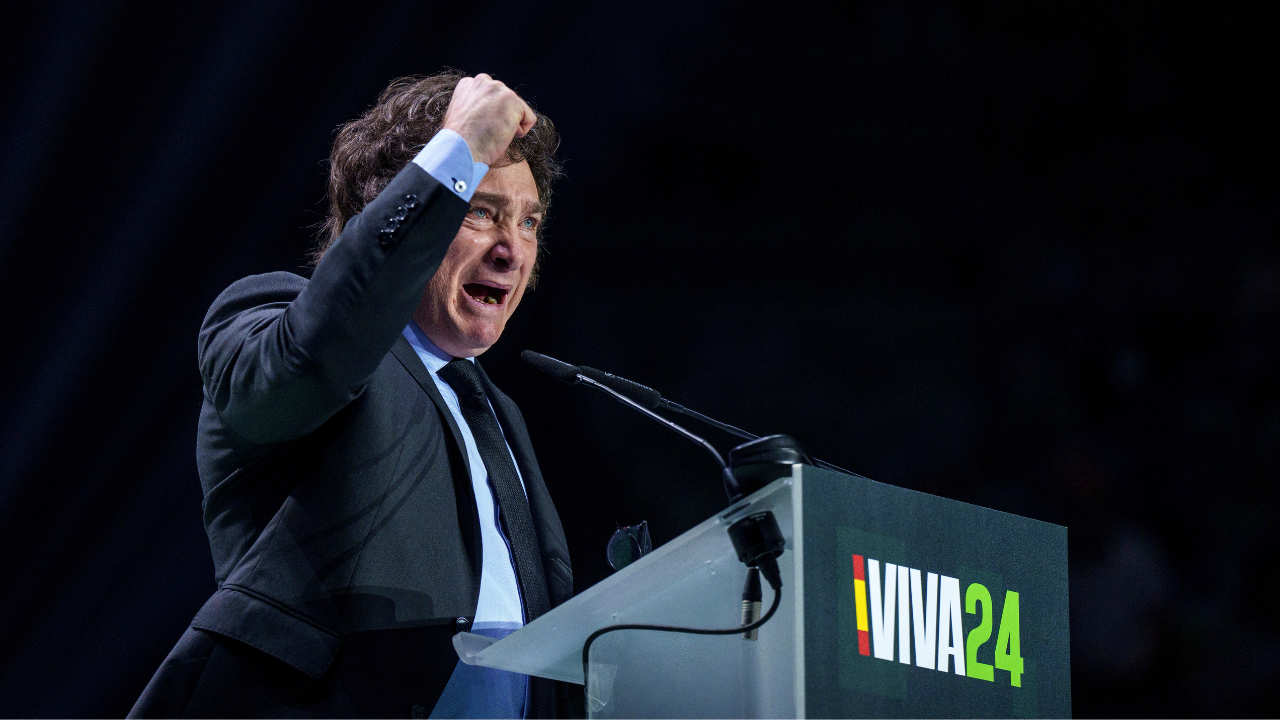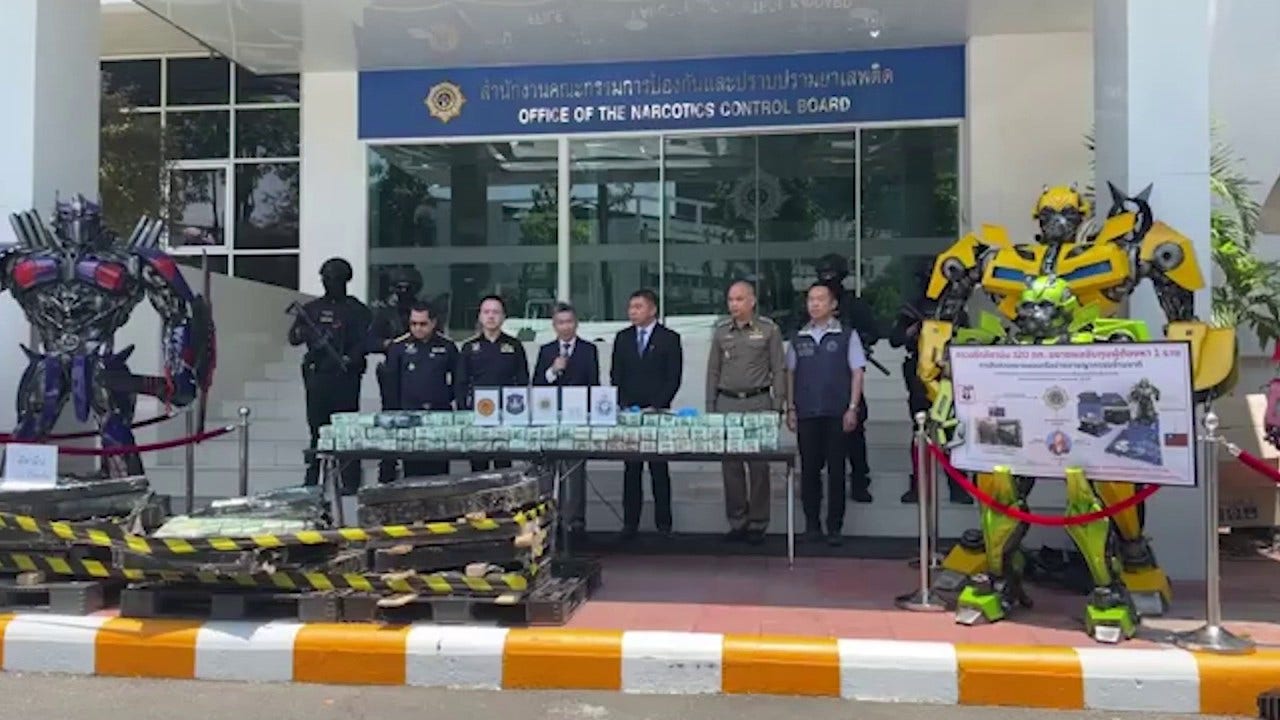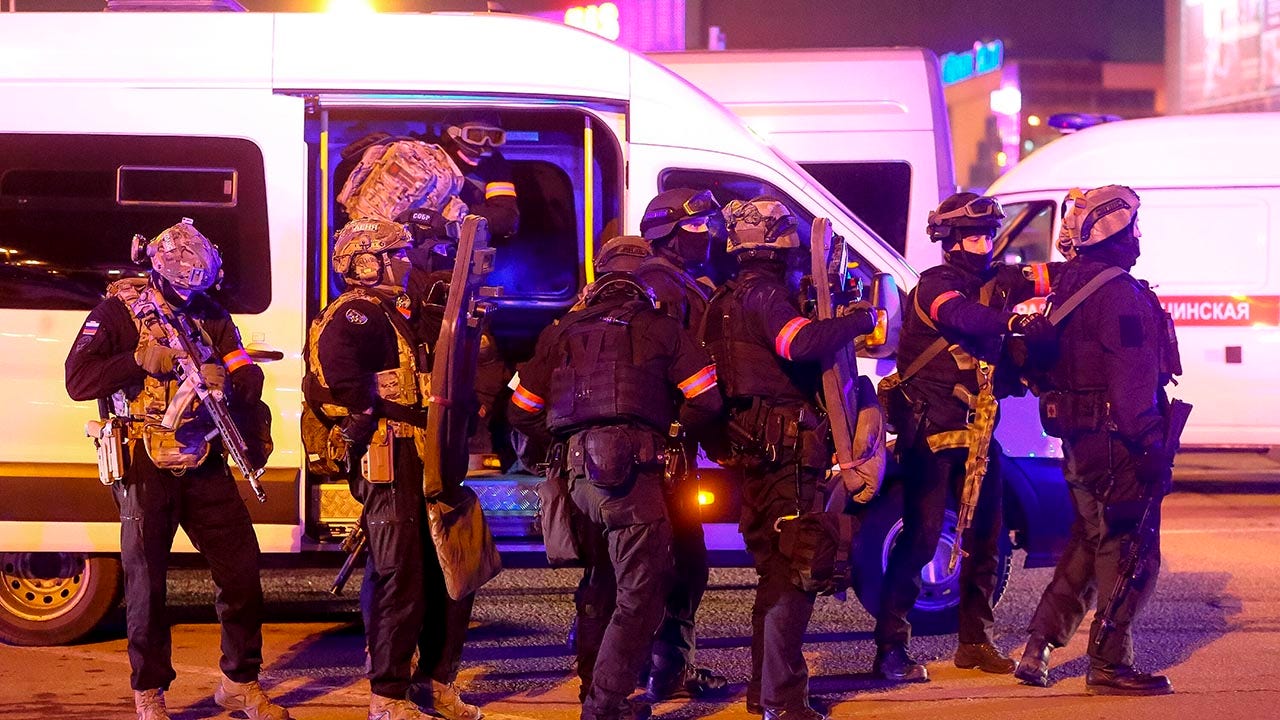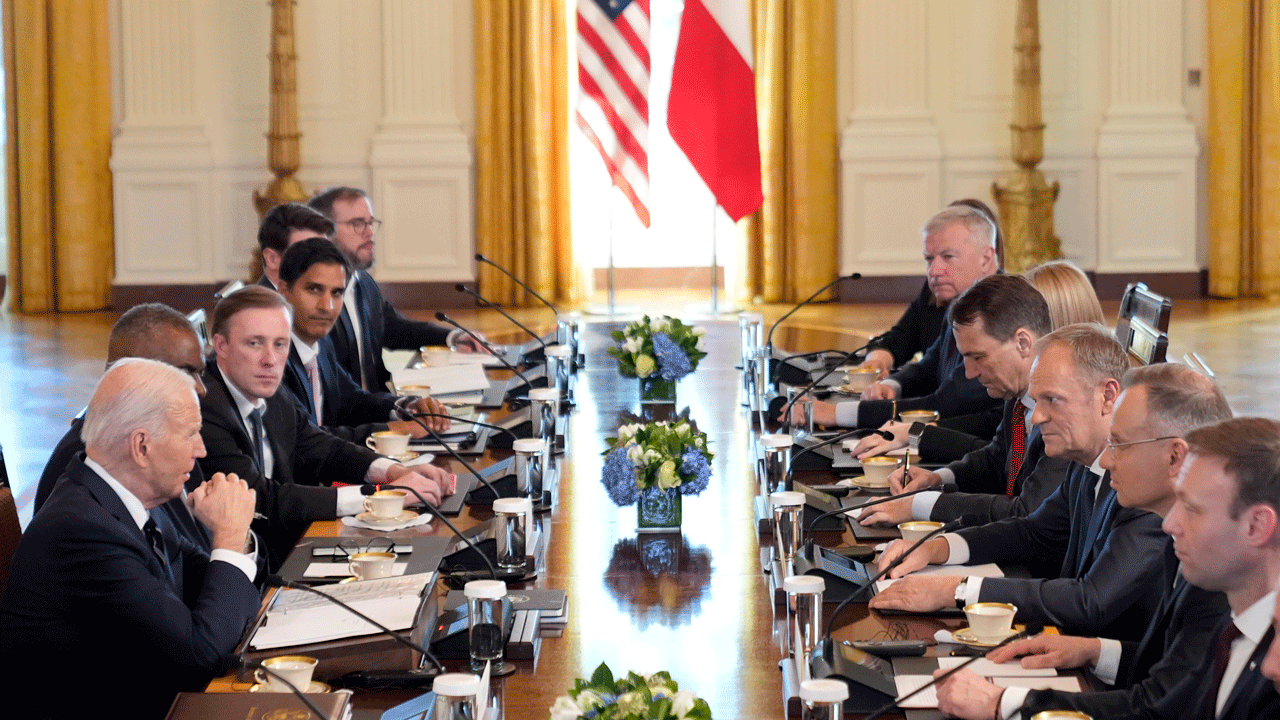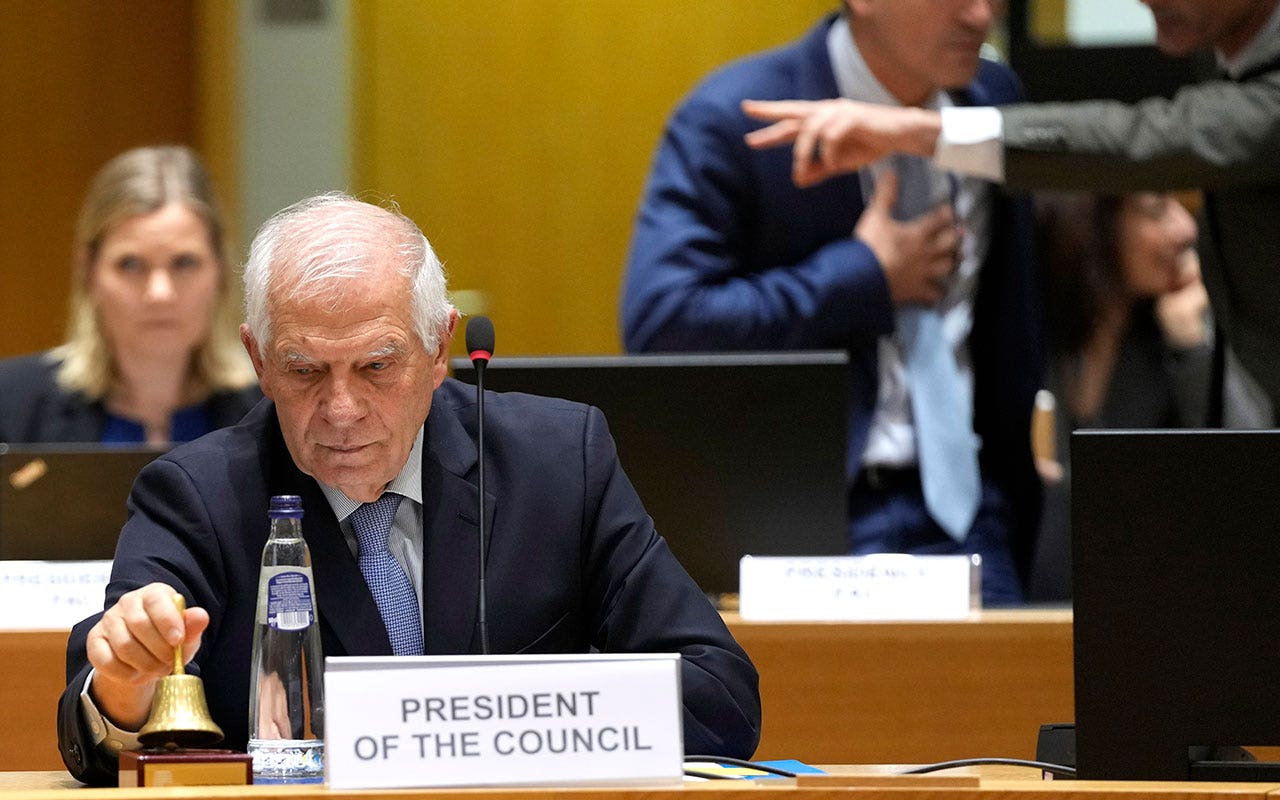
The moment the Parliament of Georgia put its final seal of approval Tuesday night on a contentious law aimed at keeping closer tabs on organizations funded from abroad, protesters surrounding the building erupted with screams, boos, and whistles.
Many were stunned, and some were in tears, fearing that the law could change the trajectory of their country for years to come, aligning it more with Russia than with the European Union they want to join.
“It is a new chapter in our life,” said Tamar Kintsurashvili, 54, who runs a nongovernmental organization that aids media organizations in Georgia, referring to what protesters have called the “Russian law,” saying it resembles one the Kremlin adopted to rein in its critics. “We know Russian experience. We know how they are operating.”
For weeks, the square and streets around the imposing Parliament building in Tbilisi have seethed with nightly protests, as thousands of mainly young residents of the capital who see Georgia’s future as aligned with the West — and the democratic freedoms they associate with that — decry what they see as the country’s slide into Russia’s orbit.
“We don’t want to become a second Belarus — or Russia,” said Konstantine Chakhunashvili, 32, a pediatrician and a member of the Geut protest group. Members of the group have been demonstrating in front of the Parliament every day over the past two years, but those protests have intensified — growing to include other groups and individuals — after the government introduced the foreign influence bill in April.
On Tuesday night, President Salome Zourabichvili, who has supported the protests but whose veto of the bill this month could not prevent its passage, called on protesters to press for a referendum on whether Georgia should be aligned with Europe or Russia. The president, whose duties are mainly ceremonial, also called on the country’s divided opposition parties to join forces to unseat the ruling Georgian Dream party at parliamentary elections in October.
“Are you angry today?” she told the crowds via a video link. “Let’s get to work.”
While the protesters have vowed to fight on, there is little they can do to change the reality of the bill that Georgian Dream legislators and their allies voted into law on Tuesday, overturning Ms. Zourabichvili’s veto.
The legislation requires nongovernmental groups and media organizations that receive at least 20 percent of their funding from abroad to register as organizations “pursuing the interests of a foreign power.”
Both the United States and the European Union have criticized the law, and E.U. officials have said it could hamper Georgia’s longstanding ambitions of joining the bloc.
The protests have been mainly organized by civil society groups, many of which receive funding from overseas groups promoting things like democracy and a free media, who fear the country is sliding into authoritarianism. Many have coordinated their activities in messaging apps with opposition lawmakers.
The protests have been broadly embraced by citizens of the capital. Students have marched from their schools, and workers from their offices. Tbilisi’s techno dance clubs called on their patrons to go out and protest.
That has particularly been the case with older Georgians in rural regions and in small towns and villages, many of whom bore the economic brunt of the collapse of the Soviet Union, and the chaos when Georgia plunged into civil war.
Many repeat the government’s claims that foreign groups and the European Union are imposing what they call an L.G.B.T.Q. ideology on Georgia — echoing populist leaders in countries like Hungary and Slovakia. In response, they have held their own marches, which are characterized by hymns and crosses instead of the anti-Russia chants and flags of the European Union at the pro-Western demonstrations.
“Everyone wants to interfere in our politics and make sure there is war here just as in Ukraine,” said Ketevan Lomidze, 60, a doctor, at a recent “family values” rally in Tbilisi. “We want to be part of the European Union, but with our own sovereignty, faith and traditions.”
Such polarization has been exacerbated by Russia’s war in Ukraine, which has forced Georgia to make a clearer choice between the West and its giant neighbor, said Dimitri Moniava, head of the Center for Strategic Communications, a research group in Tbilisi.
And, fearing its 12-year grip on Georgia might end, Georgian Dream, which is led by a reclusive oligarch, Bidzina Ivanishvili, is tapping into the fears of conservative voters and moving to curtail the activities of its critics, Mr. Moniava said.
“We are witnessing the formation of a fully-fledged authoritarian regime,” he said.
Many of the protesters in Tbilisi are students and professionals born in an independent Georgia after 1990. They say they fear their country is at a pivot point, and that democratic freedoms — like the one that allows them to protest in front of the Parliament — might be taken away.
“If we let them slide back to the times of the U.S.S.R., they will try to restrict freedom of assembly and speech,” said Mr. Chakhunashvili, the protest group member.
The government says it wants Georgia to be in the European Union and NATO, but that it has little choice but to take a more neutral stance on Russia, with which it fought a brief war in 2008, to avoid getting engulfed in a spreading conflict from Ukraine. The offices of the prime minister and the majority leader in Parliament declined requests for interviews.
Nino Zhizhilashvili, an anchor at Formula, one of the leading TV channels in Georgia, and dean of the Caucasus School of Media, said she joined the demonstrations to protest an increasingly restrictive environment for the media, as well as physical attacks on journalists.
“We are taking sides now; we can’t be impartial,” said Ms. Zhizhilashvili, 52. “We are all civil activists because we are attacked; our country is attacked — we are perceiving it as Russian pressure.”
Badri Okujava, a researcher at SovLab, an organization of historians studying Georgia’s past under Soviet rule, is one of the organizers of the protests.
“Russia did awful things in our country,” Mr. Okujava said in an interview in SovLab’s office, which was packed with dusty archival documents that he said outlined Russia’s occupation of Georgian land for centuries and the destruction of its culture.
According to Mr. Okujava, the government has tried to conceal Moscow’s role in such events. Access to archives has been severely restricted, he said, while history textbooks, which are overseen by the education ministry, have been dedicating more space to the Middle Ages, when Georgia’s main enemies where Turkey and Iran, not Russia.
Eka Gigauri, the head of Transparency International Georgia, which focuses on corruption issues including writing reports about Mr. Ivanishvili, the founder of the Georgian Dream, said that her organization would not abide by the law.
She said her work had made her a constant target of attack; her car had been spray painted and her face had appeared on posters around Tbilisi accusing her of being a foreign agent and an “L.G.B.T.Q. propagandist.”
“These guys act in the interest of Putin’s regime,” said Ms. Gigauri, 46, referring to the government. The foreign influence bill would turn Georgia into a “backyard of Russia,” she said.
